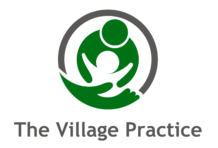Non-urgent advice: Why You Might Be Asked to Buy Over-the-Counter Medication
Sometimes, this means you may be advised to buy medication over the counter (OTC) rather than receiving a prescription.
What Are Over-the-Counter Medicines?
OTC medicines are treatments you can buy without a prescription from pharmacies and, in many cases, supermarkets. These include remedies for common, self-limiting conditions such as:
- Mild pain or fever (e.g., paracetamol or ibuprofen)
- Hay fever and other allergies
- Coughs, colds and sore throats
- Indigestion and heartburn
- Constipation or diarrhoea
- Head lice treatments
- Minor skin conditions (e.g., eczema, rashes, fungal infections)
Why Are We Encouraging the Use of OTC Medication?
Following NHS guidance, GPs are encouraged not to prescribe medicines for conditions that:
- Are self-limiting and will get better on their own
- Can be treated effectively with OTC products
- Are considered to be minor or short-term
This helps:
- Free up GP appointments for those with more serious health needs
- Reduce unnecessary use of NHS funds
- Encourage self-care and health confidence
Will I Always Be Told to Buy OTC?
Not necessarily. There are exceptions, and prescriptions may still be provided in certain circumstances, such as:
- Long-term or complex medical conditions
- Medicines not available to buy over the counter
- When a clinician believes a prescription is more appropriate due to your individual health needs
Need Advice?
Our clinical team is here to help you make the best choices for your health. If you’re unsure about whether to buy a medication or need help managing your symptoms, speak to a pharmacist or contact the practice.
Thank you for helping us support a more sustainable NHS.
